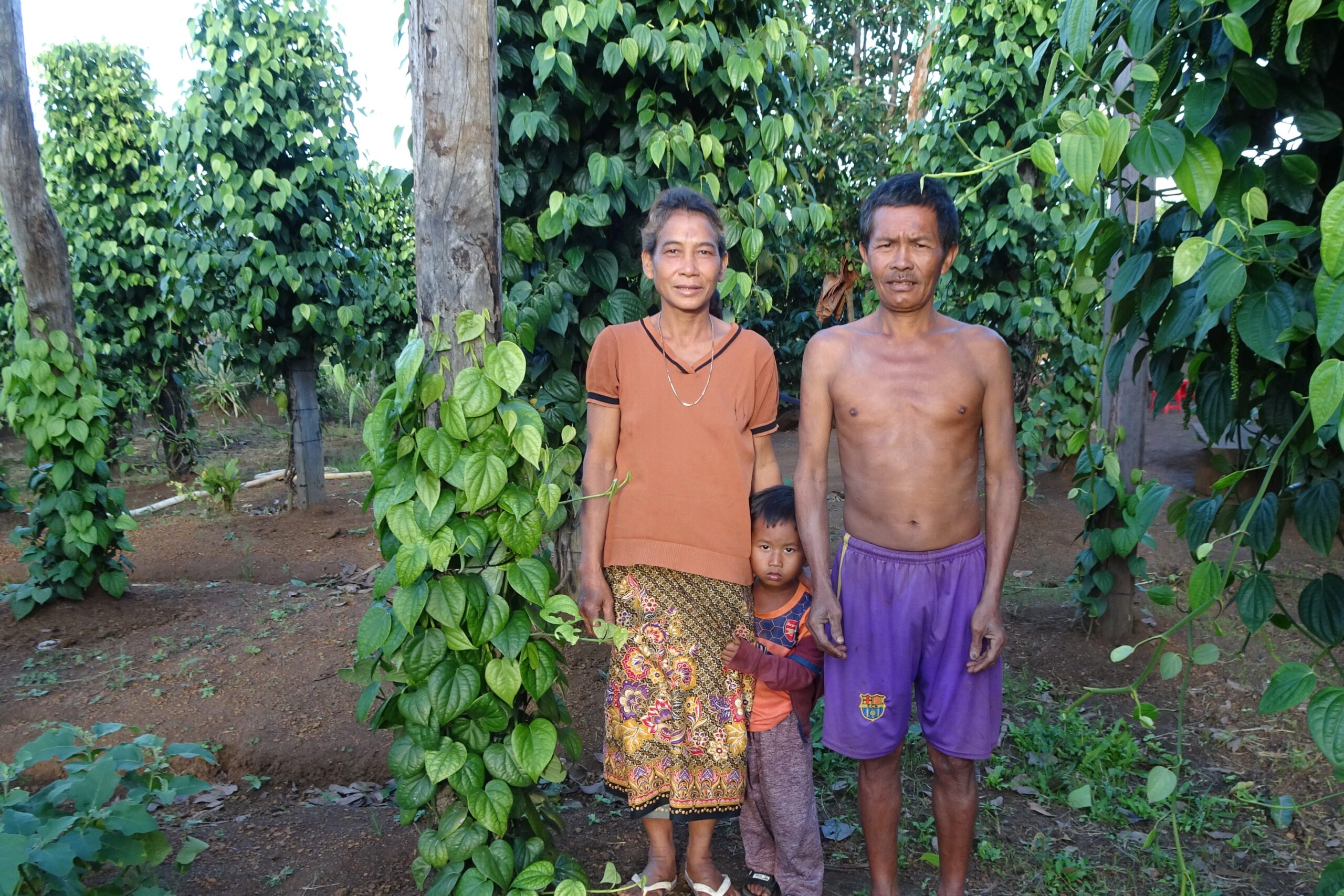Interview with a member of the pepper group

A talk with a pepper group member, village no. 2, growing pepper for 4 years.
Before she took part in the program of BIPA she had to work for other people for income. But then she joined the training of BIPA «when I heard about it, I have a small piece of land near to a water source and I thought about pepper so I wanted to start with it. » First, she failed a bit but she tried again and again: «First I tried, and I tried and tried, sometimes at the beginning it was not yet good. Then they (BIPA experts) came to check on it and advised me and then I understood the concept and started again. »
What she has learned from the BIPA agricultural team: «To take care of this it is important. So important for me, I have to follow like I stay here and I take very good care. Everything I have to do is every day follow what they say because if there is a change in the colour…oh, maybe something is wrong: if it is green it is very good, when the colour isn’t green something is wrong.» So she checks if maybe insects, other animals or sickness is present so she has to remove something or she uses natural pesticide. And now (it is working how she is doing): «Now I have become an expert». She is also a consultant to people around her and teaches others: «When people want to grow, then they listen to me a lot now.». She also knows now how to make the seedlings by her own and people buy the seedlings from her.
Some Khmer people also want to grow pepper. They usually have capital to start but they don’t have technic knowledge. If they have problems, they call her to check on the pepper and pay her for her consultation of how to cure several sicknesses. This also provides her with a new income.
I: Can you now live from the farm?
F: «Yes! I only work sometimes for people when they ask me about pepper.»
For her it is much better than before: « I had a very hard life because I depended on the rice fields after that there was no more farm. My husband and I had to go to the forest very far to collect bamboo and resin. Sometimes we had a little income out of this but sometimes we haven’t had enough money to buy food. Now if I compare it to the past, there were a lot of changes. If I need some money I don’t have to go far I just sit here and collect something to sell.
I: Not yet all of us are successfully growing peppers and there are still a lot of people which fail. Should BIPA continue and try to reach people who don’t yet follow the program? What do you think about that?
In her opinion other farmers need consultations like she got at the beginning. «It is important to encourage Bunong how they (BIPA experts) are doing it now, they are visiting the farms, encourage people to grow things and they observe. Thanks to them I was motivated».
And now she stays almost always on the farm and is only little in the village. She likes the farm.
Some Khmer people also want to grow pepper. They usually have capital to start but they don’t have technic knowledge. If they have problems, they call her to check on the pepper and pay her for her consultation of how to cure several sicknesses. This also provides her with a new income.
I: Can you now live from the farm?
F: «Yes! I only work sometimes for people when they ask me about pepper.»
For her it is much better than before: « I had a very hard life because I depended on the rice fields after that there was no more farm. My husband and I had to go to the forest very far to collect bamboo and resin. Sometimes we had a little income out of this but sometimes we haven’t had enough money to buy food. Now if I compare it to the past, there were a lot of changes. If I need some money I don’t have to go far I just sit here and collect something to sell.
I: Not yet all of us are successfully growing peppers and there are still a lot of people which fail. Should BIPA continue and try to reach people who don’t yet follow the program? What do you think about that?
In her opinion other farmers need consultations like she got at the beginning. «It is important to encourage Bunong how they (BIPA experts) are doing it now, they are visiting the farms, encourage people to grow things and they observe. Thanks to them I was motivated».
And now she stays almost always on the farm and is only little in the village. She likes the farm.
Improving the living situation of Bunong farmers
Through training and consulation Bunong farmers learn how to grow different crops, take care of them and how to apply a sustainable permanent agriculture instead of rotational agriculture.
This farmer was able to change her families lives and has a steady income through growing pepper and other crops.
